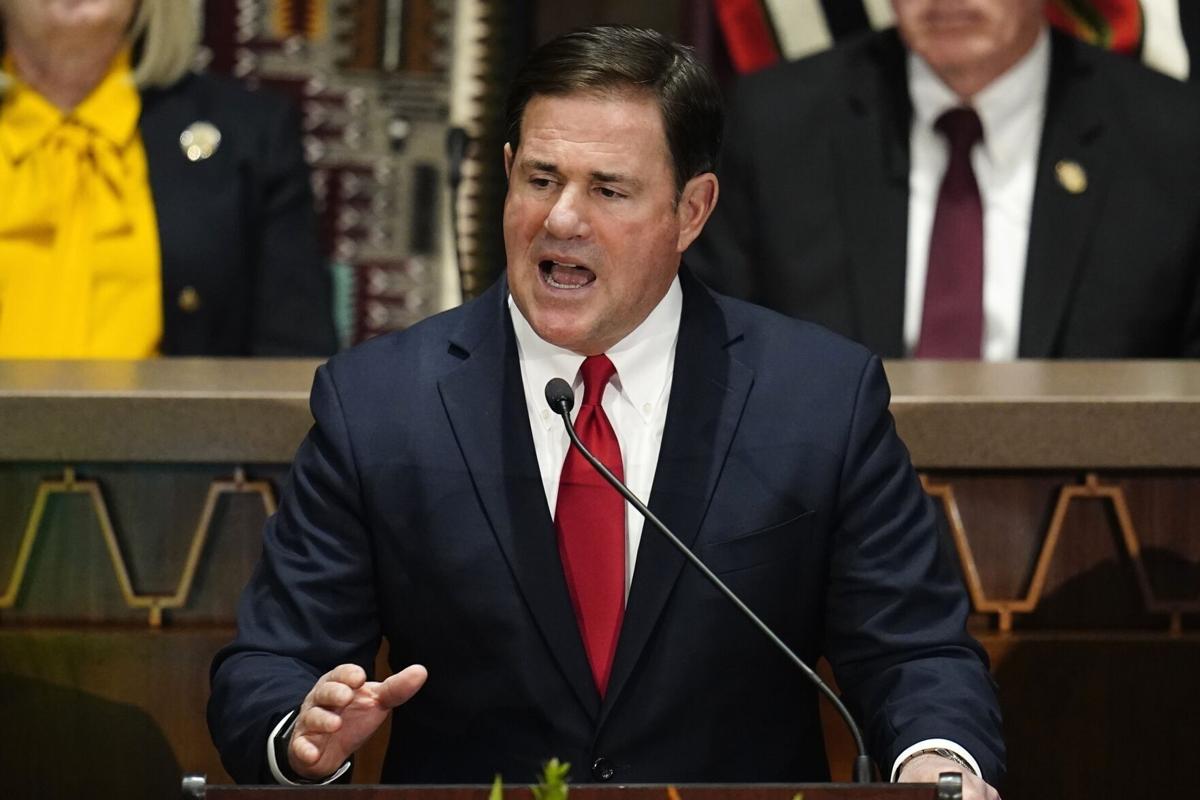PHOENIX т Efforts to adopt at least a basic state budget for the coming fiscal year ran aground Wednesday as two Republicans on the House Appropriations Committee refused to go along, leaving it short of votes.
Rep. Michelle Udall, R-Mesa, sided with the Democrats on the committee in saying there is no reason for state government, with what could be a $5 billion-plus surplus, to leave all that money sitting around while priorities arenтt funded.
тThis is not paying attention to the revenues, not paying attention to what the needs of this state are,тт Udall said.
тThere are a lot of things missing from this budget that are vital to our state in the coming year: water, border security and immigration, some education matters,тт she said. Also left out, she said, are smaller priorities like dealing with an operating shortfall at the УлшжжБВЅ State Hospital.
People are also reading…
Udallтs defection by itself would not have killed the plan. That still left seven Republicans supporting it on the 15-member panel.
But Rep. Jake Hoffman, R-Queen Creek, also declined to go along, albeit for vastly different reasons. He derided the claim that the $13 billion proposal to simply continue existing state programs is somehow a тskinny budget.тт
тWe have a $5.3 billion surplus,тт Hoffman said. тThat doesnтt mean weтre doing a great job. That means that weтre overtaxing the people that we represent.тт
Hoffman said he was afraid the $13 billion plan would not be the last word.
тI donтt want a тshadow budgetт where we pretend like weтre passing a тskinny budget,т doing our constitutional obligation, then we come through (later) and we pass a bunch of garbage spending bills,тт inflating that skinny budget to something much larger, he said. Without a commitment not to do that, Hoffman said he was unwilling to approve even this baseline.
Itтs not just the Democrats and some Republican lawmakers who want more spending. The Republican governor made it clear Wednesday he was not interested in signing a spending plan in his last year in office that simply keeps things the way they are.
тNobodyтs talked to me about a skinny budget,тт Gov. Doug Ducey told Capitol Media Services. тWe have a $5.2 billion surplus. And we have real needs right now, including our border, wildfires that are happening across the state and the УлшжжБВЅ state water commission,т he said.
The creation of what would be called the УлшжжБВЅ Water Authority has been a top priority of Duceyтs as the state, in the middle of a historic drought, looks for ways to supplement its water supply and not be forced to curtail growth. The authority would have the right to obtain and even own water, with the possibility of desalinating water from the Gulf of California.
It also would need $1 billion over three years to get off the ground т money that was not in the proposed skinny budget. That made the budget veto bait, Ducey said.
тI presented the budget that I wanted the week after the State of the Stateт speech he gave in January, he said. тAnd I still want that budget,тт which proposes $14.25 billion in spending.
Hoffman, by holding out his vote, and preventing the measure from advancing to the full House, may have effectively dealt himself out of future negotiations.
тWe offered an opportunity for the cheapest budget we can get,тт House Speaker Rusty Bowers, R-Mesa, told Capitol Media Services after the Wednesday vote. тAnd so, weтll just have to go by ear now and see what we can come up with.тт
Rep. Regina Cobb, R-Kingman, who chairs the Appropriations Committee, said doing nothing is not an option. She pointed out that the УлшжжБВЅ Constitution gives the Legislature just one mandatory duty: adopt a spending plan for the next fiscal year.
Also, it isnтt like Congress, where a voice vote can approve a тcontinuing resolutionтт to keep government operating. If there is not a final budget approved by the House and Senate and signed by Ducey by July 1, state agencies shut down.
Cobb said Wednesdayтs vote gave her some insight into what has to happen next т meaning, starting again with what was in the baseline budget and then putting in тwhat we need to put in.т
There are 31 Republicans in the 60-member House.
So without Udall and Hoffman, and potentially other Republicans, Cobbтs only choice is to seek Democratic support to come up with a majority. And Democrats on the panel made it clear Wednesday they have things they need added to the spending plan to get their votes.
тI would call it a woefully inadequate budget,тт said Rep. Kelli Butler, D-Paradise Valley. With the $5 billion-some in excess funds, keeping spending at current levels is тausterity being continued absolutely needlessly,т she said.
She cited, for example, funding needs for the developmentally disabled and those needing long-term care. Butler also noted the budget adds no money to the Department of Environmental Quality despite a finding last year by the Auditor Generalтs Office that the agency has filed to perform many required tasks in monitoring groundwater for pollution.
Hoffman defended torpedoing the skinny budget plan. He said Wednesdayтs vote was тlittle more than a ruse to strip transparency out of the budget process,тт saying it appears it was always the intent to later add тbillions in wasteful spending.тт
тLeadership and Cobb have known for weeks that unless they committed to not doing a тshadow budgetт many Republican members would not be on board,тт Hoffman said. тUnfortunately, they refused to make that commitment.тт
Cobb said the goal now likely becomes finding the middle ground that adds enough to the spending plan to pull in the necessary votes from Democrats without losing more Republicans.










